Iran To Pay $6 to 30 Million People In Special Ramadan Handout
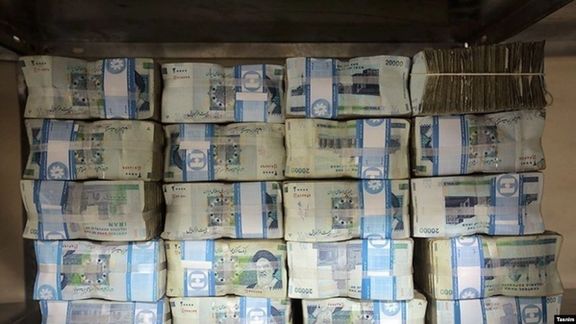
Iran will pay 1.5 million rials (less than $6) of cash handouts to 30 million citizens to help them during the Muslim fasting month of Ramadan as food prices keep rising.

Iran will pay 1.5 million rials (less than $6) of cash handouts to 30 million citizens to help them during the Muslim fasting month of Ramadan as food prices keep rising.
The especial Ramadan handout that will be paid out Friday night is distinct from a monthly payment of less than $2 and covers about 60 million people.
The Ramadan handouts, which will total to about $180 million, suggest that authorities believe there are over 30 million people in the country who need the $6-cash handout.
The number of recipients and amount of the government’s handouts vary. For example, the cash handouts for the anniversary of the 1979 revolution was 1 million rials (less than $4) and was paid to 34 million people and the handout for the Iranian new year was 1.5 million rials (less than $6) but only 12 million Iranians received it.
The government is trying to increase the monthly cash handouts to $3-4 in the new Iranian year (from March 21) to compensate for the elimination of an $8 billion subsidy for food and medicine in its new budget.
A typical worker gets around $120 to $200 a month, while rents and other daily necessities have risen with the fall of the national currency, keeping pace with the value of the US dollar.
The current annual inflation rate hovers at around 40 percent.
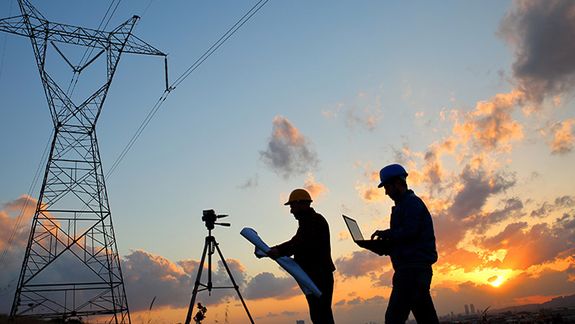
Iran added only 1.2 gigawatt (GW) to its power generation capacity last fiscal year despite a projected 3.5-GW growth plan, Energy Ministry reported April 13.
This is the third consecutive year that Iran fails to realize its annual electricity growth plan, falling behind consumption that is quickly increasing because of extremely low prices. The government in control of the energy sector provides up to $60 billion a year in this indirect subsidy to people and businesses.
Last summer - during peak demand season- Iran faced a huge electricity deficit and long-lasting power outages throughout the country.
It needs at least 5 to 7 percent electricity generation growth annually to address the increase in domestic demand.
Energy Ministry’s report indicates that Iran’s electricity exports declined by around 40% last year and its imports rose 5%.
Lack of investment in expanding power generation capacity and natural gas production are the main reasons behind the power shortage. Only the gas sector needs $40 billion to increase production and keep up with demand.
The lion share of power generation decline came from hydro-power plants, which experienced a 36% decline in power generation during last Iranian year due to severe droughts. The hydro-power plants generated only 15 terawatt-hours (TWh) of electricity during last fiscal year, plunging from 31 TWh in 2019.
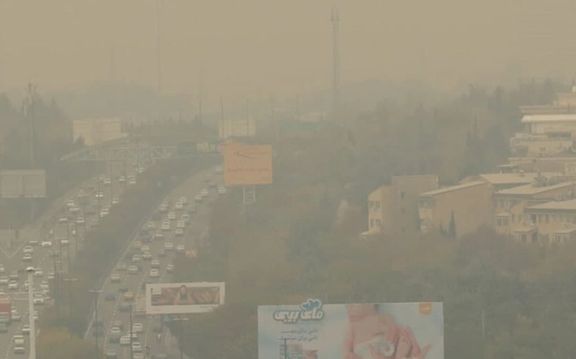
On the other hand, the country’s nuclear electricity generation has also declined from above 7.5 TWh in 2017 to only 4.4 TWh last year, or about 1.4% of the country’s total power generation.
Iran on average has 300 sunny days annually, but its renewable energy sector hasn’t been developed yet. Wind and solar power generation have only 0.5% share of total power generated domestically.
Thermal power plants had above 90% share in the country’s 324-TWh electricity generation last year, but regarding the huge gas deficit in cold months, they had to burn billions of liters of polluting mazut and diesel in power sector.
This can be deducted from the fact that the country became a net diesel importer this winter for the first time in more than a decade. But the government managed to prevent widespread power cuts, unlike the winter of 2020-2021 when large cities had serious power shortages, leading to protests.
Liquid fuels consumption in power sector has led to serious air pollution in big cities, and this was another reason to trigger protests in January 2021.
The Iranian government has not published the liquid fuels usage in power plants during last year (March 21-2021-March 20, 2022), but in 2020 it consumed 6 billion liters of mazut and 11 billion liters of diesel, or 60% more than in 2018.
Electricity generation in Iran needs around 220 million cubic meters of gas per day, while in January 2022 deliveries declined to 100 million cubic meters.
Iran’s gas production is gradually falling due to years of government inability to invest in gas fields and acquire Western technology.
Meanwhile, burning mazut, a heavy dirty fuel leads to extremely harmful air pollution. The global air quality monitoring company IQAir put Tehran as the most polluted city in the world on April 8, with a “very unhealthy” average real-time air quality index of 236.
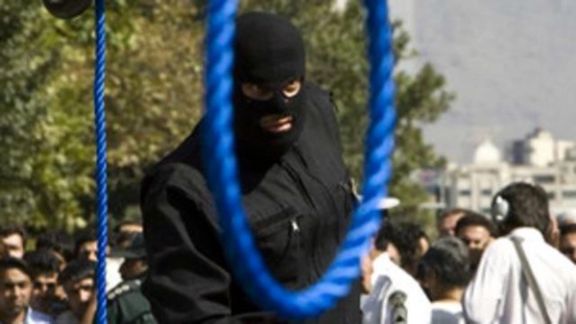
Iran's foreign ministry has called the US State Department's annual report on human rights in Iran "baseless" and said the US government is "addicted to lies".
"Publication of repetitive and baseless reports does not create any kind of legitimacy for such reports," Saeed Khatibzadeh said in a statement Thursday on the foreign ministry's website in reaction to the US State Department's 2021 report on human rights practices published Tuesday.
"The lie-addicted government of the US cannot be expected in any way to talk about truth and existing realities," he said while alleging that the United States ignores "systemic violation of human rights" in its own country and by its allies.
Khatibzadeh also said that the assassination of Iran's Revolutionary Guards (IRGC) Qods Force commander, Ghasem Soleimani in Baghdad by former US President Donald Trump's orders was an indication of the "terrorist nature of the United States".
The State Department's report, the second by the administration of President Joe Biden, said Iran violates human rights in various ways including unlawful or arbitrary killings by the government and its agents, executions for offences that do not meet the threshold of the "most serious crimes" such as drug-trafficking and financial corruption, and for acts not internationally recognized as crimes. "Death sentences were used as a weapon of repression against protesters, dissidents and ethnic minorities," the report said.
The report alleged that the Islamic Republic takes reprisal against individuals in other countries including killing, kidnapping, or violence and punishes family members for offenses allegedly committed by an individual.
"The government [in 2021] took few steps to identify, investigate, prosecute, and punish officials who committed human rights abuses or corruption. Impunity remained pervasive throughout all levels of the government and security forces," the report said.
"We continue to find ways both in public and in very discreet manners to support people who are trying to advance the human rights situation in Iran," said Lisa Peterson, acting assistant secretary of state for democracy, human rights and labor affairs at a special briefing on Tuesday. "We have also put into play a variety of sanctions tools."
In its most recent annual report, Amnesty International also rebuked the Islamic Republic for routinely repressing citizens and "systemic impunity" of officials for "past and ongoing crimes against humanity".
The global rights watchdog criticized Iran for torture and other ill-treatment of prisoners, use of the death penalty as a weapon of repression, and executions carried out after unfair trials as well as holding the country's June 2021 presidential elections "in a repressive environment'.
Iran routinely dismisses any criticism of its human rights record but has not allowed international rights groups and the United Nations special rapporteurs to visit the country.
The Biden administration released its first report on human rights practices in Iran on March 31 last year in which it alleged that violation of human rights was a policy in the Islamic Republic and the regime was also involved in widespread human rights violations in other countries in the Middle East.
Despite tough criticism of Iran’s record by successive US administrations, the issue of gross human rights violations hardly have a place in negotiations with Tehran over its nuclear program or aggressive policies in the region, although certain human rights sanctions are in place.
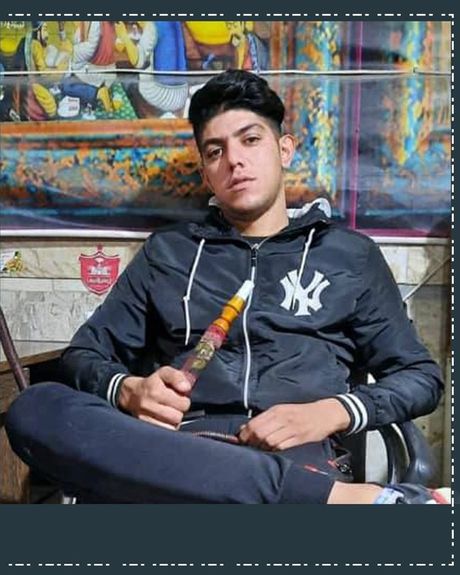
A Kurdish young man living in Tehran has died in a police detention center, with the family claiming he was killed under “torture.”
The Kurdistan Human Rights Network said on Wednesday that 25-year-old Milad Jafari was arrested on drug-related charges on April 7.
A member of Jafari’s family, which is from the western city of Kermanshah, told the human rights group that the department of forensic medicine in the Kahrizak Detention Center in Tehran Province had contacted the family to pick the dead body of their relative.
The father was shown photos of the body with clear marks of bruises and bleeding on the face, the relative said, with the authorities explaining that Jafari had committed “suicide” and “fell from a height”.
His family was also told that the body was transferred on April 8 to Kahrizak, while police said the young man died on April 11.
The family refused to take the body until autopsy results reveal the cause of the death.
The Kahrizak Detention Center is notorious for its cramped and squalid cells where prisoners have been routinely verbally abused and beaten by guards.
Two inmates, Amir Javadifar and Mohsen Ruholamini, son of a well-known political figure close to Iran’s supreme leader, were allegedly beaten to death there. They had been arrested during unrest triggered by the disputed 2009 disputed presidential elections.
Complaints lodged with Supreme Leader Ayatollah Ali Khamenei led to the closure of the detention center in 2009, but the facility re-opened a year later after being renamed Soroush 111 Detention Center.
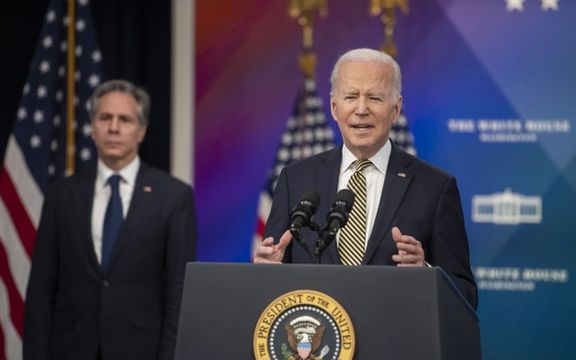
A possible lawsuit by a conservative legal group threatens to delay the implementation of a nuclear deal by the Biden Administration, reports said on Thursday.
The Washington Free Beacon reported on Thursday that America First Legal Foundation has notified the White House that it "intends to take legal action to block any Biden-Iran deal that is not submitted to Congress" for approval.
In a litigation notice letter sent to President Joe Biden, Secretary of State Antony Blinken and Attorney General of the United States Merrick Garland, the Foundation says, “Please be advised that AFL intends to take legal action to block any BidenIran deal that is not submitted to Congress in full compliance with the Iran Nuclear Agreement Review Act.”
In the letter the group also argues that President Biden’s call for Iran and the United States to “mutually return” to the 2015 nuclear deal known as the JCPOA does not absolve the administration of its duty to comply with Iran Nuclear Agreement Act. It says that too many things have changed since the deal was signed in 2015, with Iran breaching its terms and sunset clauses either having passed or close to maturation. A new agreement in Vienna would not be simply the continuation of the JCPOA and therefore, it must be submitted to Congress for review and a vote.
The tactic of legal action could be aimed at making the White House think twice before concluding an agreement, although this has become more complicated since early March, when new Russian and Iranian demands brought the talks to a halt. Rep. Scott Perry (Rep-Pa) told the Free Beacon the threat of prolonged litigation "puts the administration on notice so that they think twice before proceeding."
If legal action is taken in the event of a final agreement, the group hopes that it could delay the deal’s implementation by a long litigation process.
Opposition to a new agreement has gained strength since reports indicted that Iran demands its Revolutionary Guard to be removed from the US list of Foreign Terrorist Organizations (FTO). Almost all Republican lawmakers and some Democrats have come out opposing a deal with Iran that would provide billions of dollars in sanctions relief and cash funds currently frozen in various countries.
On Thursday, Rep, Claudia Tenney (Rep-NY) in an opinion piece in Newsweek argued that the Biden administration is avoiding Congress, She said US Special Envoy for Iran, Robert Malley is hiding from Congress.
The role of Russia in Vienna talks is another issue critics highlight, which has gained more traction since the invasion of Ukraine. Moscow appeared to be playing an important role in the talks in Vienna as a broker between Washington and Tehran. They say that Russia and possibly China designed a deal that would benefit them and Iran, which is a sworn enemy of the United States in the Middle East.
The America First Legal Foundation in its letter also warns the administration to preserve and protect all the records of the negotiations.
"You are on notice to cease and desist from deleting or destroying all records, including but not limited to emails, whether under an agency document destruction policy or otherwise," the notice said. It added that the Foundation "considers these records to be valuable and
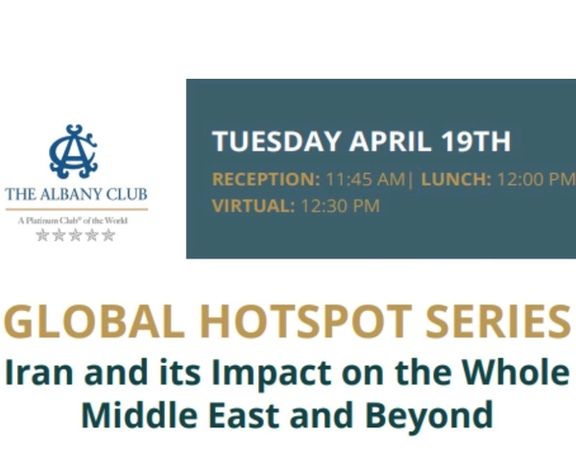
A seminar organized to discuss the Islamic Republic’s actions and impacts on the Middle East and beyond has been cancelled due to security concerns.
Bryan E. Leib, the executive director of Iranian Americans for Liberty, who was among the panellists of the event told Iran International on Thursday that the seminar was cancelled when organizers found out that two of the participants -- Mark Dubowitz and Victoria Coates -- are on the Islamic Republic’s sanctions list.
The event was scheduled to be held on Tuesday, April 19, at the Albany Club in the Canadian city of Toronto.
“The event organizers were alerted of security concerns and in an abundance of caution, the event was cancelled”, Leib said, adding that “We will be rescheduling this event with proper security precautions because we will never stop speaking out against the malign influence of the Islamic Republic of Iran throughout the world."
Dubowitz is a South African-born Canadian-American attorney and the CEO of the Foundation for Defense of Democracies, a non-profit think-tank and advocacy institute with a critical focus against Iran’s clerical government. He is known as a proponent of sanctions against Iran and was a leading critic of the Iran nuclear agreement.
Coates is an American political consultant who served as the Deputy National Security Advisor for Middle East and North African Affairs in former president Donald Trump’s administration.